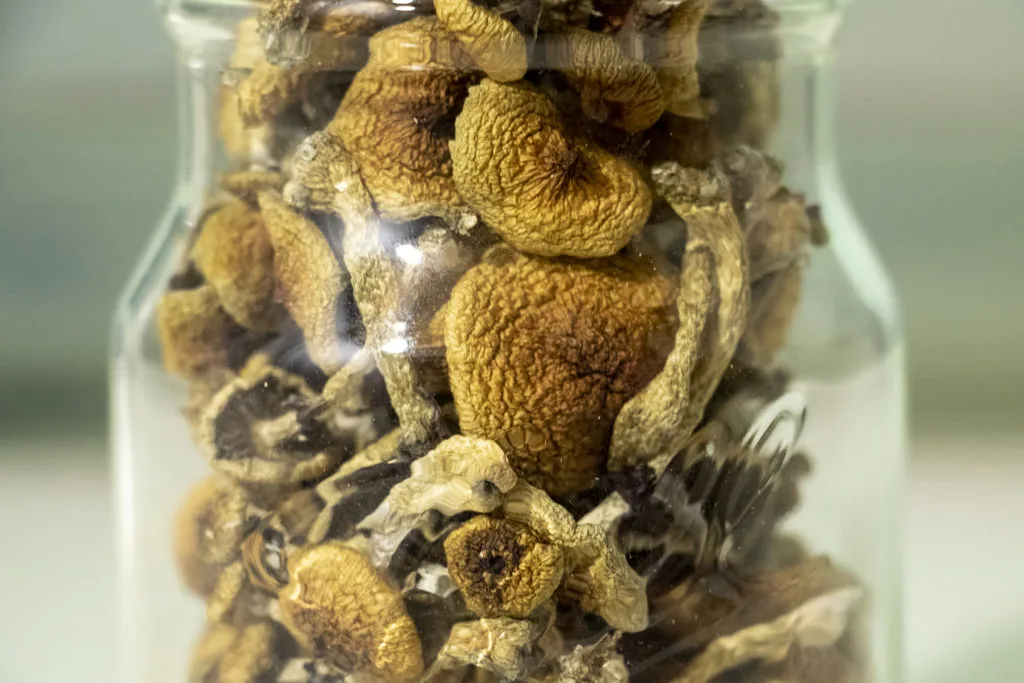According to a new study, a strong majority of those in Canada support legislation legalizing the medical use of psilocybin, while an even higher percent support its use for end-of-life care.

Dried psilocybin mushrooms. (Photo credit: Kevin J. Beaty/Denverite).
Titled Social acceptability of psilocybin-assisted therapy for existential distress at the end of life: A population-based survey, the study is published in the journal Palliative Medicine as well as the US National Library of Medicine.
“Internationally, there is a growing interest in the potential benefits of psilocybin-assisted therapy to treat existential distress at the end of life. However, the social acceptability of this therapy is not yet well known”, states the study’s abstract. “This study assesses the social acceptability of the medical use of psilocybin to treat existential distress at the end of life.”
An online survey was conducted in Canada between November 23 and December 4, 2022. The questionnaire included items pertaining to perceptions, attitudes and concerns towards psilocybin-assisted therapy to treat existential distress at the end of life. The sample (n = 2800) was stratified by province, age and sex. Participants were adults from four provinces of Canada: Québec, Ontario, Alberta and British Columbia.
“Overall, 79.3% considered psilocybin-assisted therapy a reasonable medical choice for a patient suffering from existential distress at the end of life, 84.8% agreed that the public health system should cover the costs of the intervention and 63.3% would welcome the legalisation of psilocybin for medical purposes”, found the study.
“Previous psilocybin use (p < 0.0001, for all dependent variables), exposure to palliative care (p < 0.05, for all dependent variables) and a progressive political orientation (p < 0.05, for all dependent variables) were associated with more favourable attitudes towards psilocybin-assisted therapy at the end of life.”
Researchers conclude that “The social acceptability of psilocybin-assisted therapy for existential distress at the end of life is rather high in Canada. These findings may contribute to efforts to mobilise resources and improve access to this emerging therapy in palliative and end of life care settings.”

